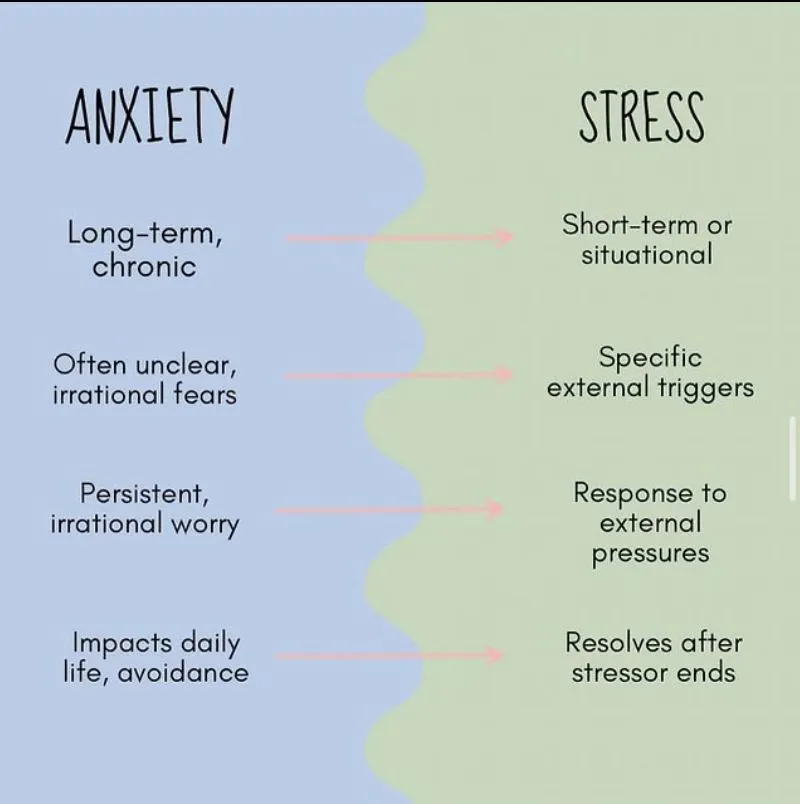Nearly 40 million people in the United States (18%) experience an anxiety disorder in any given year, yet only 36.9% of those suffering receive treatment
Research suggests that chronic stress contributes to high blood pressure, promotes the formation of artery-clogging deposits, and causes brain changes that may contribute to anxiety, depression, and addiction
40 million Americans struggle with anxiety disorders, but only 37% receive treatment. Learn why talking through fears with a non-judgmental listener can be as effective as some clinical interventions for managing anxiety.
When Fear Takes Over: You're Not Broken, You're Human
Understanding Your Fear Response: It's Actually Trying to Protect You
What Fear Really Is
When Normal Fear Becomes Persistent Anxiety
Why Talking Through Fear Actually Rewires Your Brain
Evidence-Based Strategies That Actually Work (Beyond 'Just Relax')
The 5-4-3-2-1 Grounding Technique
Progressive Muscle Relaxation: Teaching Your Body to Let Go
Cognitive Defusion: Stepping Back from Anxious Thoughts
When You Need More Than Self-Help (But Aren't Ready for Therapy)
The Power of Being Truly Heard (Without Judgment or Advice)
Why Venting to Friends Isn't Always Enough
Creating Safety for Your Most Vulnerable Thoughts
Building Your Personal Anxiety Management Toolkit
Daily Practices That Build Resilience
Creating Your Support Network Strategy
Moving Forward: Progress, Not Perfection
Consider seeking professional help if anxiety interferes with daily activities, lasts more than 6 months, causes physical symptoms like panic attacks, or leads to avoiding important life activities. However, you don't need to wait until anxiety is 'severe enough'—any level of distress that impacts your wellbeing deserves support, whether through anonymous listening, counseling, or therapy.
Yes, research shows that verbalizing fears reduces amygdala activity by up to 50% and activates rational thinking centers in your brain. Anonymous listening can be particularly effective because you can share your most vulnerable thoughts without fear of judgment or relationship consequences. Many people find that saying their worst fears out loud to a trained, non-judgmental listener significantly reduces the power those fears hold over them.
Normal worry is proportionate to the situation, has a clear cause, and doesn't significantly interfere with your life. Anxiety becomes concerning when worries are excessive compared to the actual threat, persist even when there's no immediate problem, cause physical symptoms like racing heart or sleep problems, or lead you to avoid activities you normally enjoy. If you're questioning whether your anxiety needs attention, that awareness itself suggests it might be worth seeking support.
Self-help techniques are valuable but sometimes insufficient for managing anxiety alone. If you've tried breathing exercises, mindfulness, and lifestyle changes but still feel overwhelmed, consider adding emotional support to your toolkit. This might mean talking with a trusted friend, seeking anonymous listening support, or consulting a mental health professional. Needing more than self-help doesn't mean you're failing—it means you're recognizing your needs and taking appropriate action.
Generalized anxiety often feels like 'free-floating' worry without a specific cause, which can be especially frustrating. In these cases, talking through your feelings with someone who won't try to solve or fix them can help you identify patterns and triggers you might not notice alone. Sometimes anxiety is your nervous system's way of processing stress that hasn't been fully acknowledged. Anonymous emotional support can provide a safe space to explore these unclear feelings without pressure to have answers immediately.





